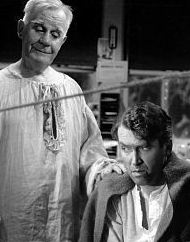by Dr. Matthew Welsh | Mar 29, 2024 | Mindfulness
Duncan Cryle is Senior Director at a global software company with over 25000 employees where he also leads a company-wide mindfulness program. He was previously one of the pioneers of IBM’s mindfulness community. He is founding member of Clear Sky Center in British Columbia, Canada, and is co-executive director there, under the guidance of head teachers Qapel and Sensei. He co-teaches Clear Sky’s Integrating Mindfulness and 3 month residential mindfulness-in-action program.
Karen McAllister is founder of the Mindful Money coaching and is passionate about building the bridge between spirituality and money. She believes that our current relationship with money reflects a spiritual crisis in the human race. She is a founding member of Clear Sky Meditation Center in British Columbia, Canada. She has been Director of Fund Development since 2008 & Board Chair from 2014 to present. She studies with head teachers Qapel and Sensei, co-teaches Clear Sky’s Integrating Mindfulness and serves the community in helping them clean up their relationship with money.
In our conversation we discuss the following:
- What is mindfulness and how people can apply it to their lives
- What are common challenges to integrating mindfulness into our daily busy and chaotic life
- Duncan and Karen’s personal and profession journey of integrating mindfulness into their daily lives
- What is Clear Sky Center
- Duncan’s role in in his software company and how he teaches mindfulness to other employees at his company
- Karen’s work as a mindful money coach
- What is a mindful approach to money and finances
- Why it is important to bring awareness and healing into our relationship with money
For more information, see http://www.clearskycenter.org. You can contact Duncan Cryle at duncan@clearskycenter.org, or Karen McAllister at karen@clearskycenter.org or visit her website at https://themindfulmoneycoach.com
by Dr. Matthew Welsh | Jan 12, 2021 | Authenticity
 By Dr. Matthew Welsh, J.D., Ph.D.
By Dr. Matthew Welsh, J.D., Ph.D.
There are a lot of self-help authors who will tell you to follow your passion. I’m a believer in this philosophy and think it can be helpful. However, I believe that following your *calling* is different than following your passion. And, I would argue that following your calling is more important than following your passion.
Essentially, following your passion is doing the activities that bring enthusiasm and joy into your life and you are passionate about. Alternatively, following a calling is doing the activities or making decisions that bring you an inner knowing that this activity or decision is the right thing to do. Or, a calling may be following your heart. Sometimes following your passion and following your calling overlap, but other times they do not overlap. For example, if someone loves to write and they also know in their heart or have an inner knowing that writing is the right activity for them to do, then their passion and calling overlap.
However, sometimes following your calling does not overlap with following your passion. A good example of this is the fictitious character George Baily (played by James Stewart), in the timeless movie It’s a Wonderful Life. In this movie, George’s calling does not overlap with his passion. George’s passion is to travel the world. The movie starts with George graduating from high school with dreams of traveling the world. However, three months later the board of directors at the Building and Loan (George’s father’s company) tell George that the Building and Loan company will only stay open if George agrees to work for them and carry on his father’s work. George decides then not to take a trip to Europe in order to work for them. He also uses the funds that he had saved to go to college to give to his brother so his brother could go to college. George continues to work for this company because he believed it was the right thing to do for his family and likely an inner calling or knowing he had. Four years later, George uses money he had initially saved in order to take his wife on honeymoon to New York and Bermuda to instead keep the Building and Loan company solvent and prevent investors from taking all of their money out the bank.
In this case, George was following his calling because he was doing in his heart what he believed was the right thing to do by working for the Building and Loan company even though his passion was to travel. However, I must admit this is a hard scene for me to watch in the movie and I found myself even questioning George’s decision. He was foregoing his personal passion in order to follow a deeper calling inside of him to do what was for the best and highest good. This is another distinction of a calling. Usually a calling comes with a knowing that our decision is working on behalf of the best and highest good. This is not always easy to recognize, but usually we have an inner knowing or a peace that passes understanding of what decision is for the best and highest good. Following our calling in life does not always result in following a passion, having more ease or joy or enthusiasm in life.
However, the benefits of following a calling are that we know we are doing the right thing; and even if it is not easy, following an inner calling usually comes with experiencing an inner peace that passes understanding or internal satisfaction. If we listen closely, then we will know what our callings or inner knowings or heart is telling us to do and the benefits wiil be an internal satisfaction that we are doing the right thing with our life, working towards the best and highest good, and an internal an ineffable experience of contentment. This feeling of internal satisfaction is always available to us when we are following our calling if we can choose to trust in our self or Spirit that we will not be led astray.
by Dr. Matthew Welsh | Dec 1, 2020 | Authenticity

The following article is written by Dr. Mandy Simon about her interview she did with me as part of her Holy Grail Master Class Online Series.
By Dr. Mandy Simon
Creator of Your Holy Grail Master Class Online Series
How do I help people to become their authentic selves? Dr. Matthew Welsh had always been drawn to human potential. But it took a period of sustained hardship, before he came to focus on his true calling.
Dr. Matthew Welsh works as a clinical psychologist with the Veterans Association, supporting patients to overcome anxiety, depression, PTSD, substance misuse and relationship issues. You’ll love this interview if you believe that power comes from a state of service.
We talk about the beneficial effects of slow, controlled breathing; and Dr. Matthew Welsh shares practical techniques to help manage anxiety.
This interview reminded me that we are never alone; and it also prompted me to reflect upon the relationship between human health and planetary health. Dr. Welsh spoke with a degree of authenticity and grace, which I found inspiring. I hope you find his words to be as meaningful as I did.
You can watch the video of interview below….
by Dr. Matthew Welsh | Sep 15, 2020 | PTSD
 This article was written by Dr. Matthew Welsh J.D., Ph.D.
This article was written by Dr. Matthew Welsh J.D., Ph.D.
This is one of the more difficult and sensitive articles I have written, but my hope is that it may help you find some peace or a healthy response if you have gone through a traumatic experience…
If you have gone through a traumatic experience, then you have experienced something that is extremely difficult and may have symptoms of PTSD. Symptoms of PTSD include:
1. Intrusive thoughts, memories, flashbacks or nightmares about the traumatic experience
2. Avoidance of internal and external reminders of the traumatic experience such as memories, feelings, people, places, or things.
3. Negative thoughts and emotions related to the traumatic experience such as believing the traumatic experience was your fault, difficulty trusting others or feeling safe, and feelings of guilt, shame, anxiety, or depression related to those thoughts or beliefs
4. Hyper-vigilance such as constantly feeling like you are on guard, difficulty sleeping, trouble concentrating, and feeling like you are being threatened by something
These symptoms can make life especially difficult and anxiety-provoking. People who have experienced a trauma often say they just want to be alone to avoid any thoughts or reminders of their trauma. Additionally, when they are out in public, they try to avoid large crowds. Sometimes, they may get easily startled if they hear an unexpected noise. Additionally, they often have trouble regulating their emotions and even maintaining relationships because they are constantly on guard for a potential threat and feel afraid. Some of them even stop going out to eat at their favorite restaurant because the anxiety associated with being around so many strangers in an environment they can not control is too much for them to bear. These symptoms are also caused by changes in the brains of people with PTSD that make people with PTSD hypersensitive to external and internal stimuli. Their fight or flight response in their brain is triggered much quicker than other people because their brain is much more likely to view something as a threat to their safety due to what they have gone through in their past.
One of the treatments that can help better manage these symptoms is prolonged exposure. In essence prolonged exposure slowly and gradually exposes people who have experienced a trauma to their internal memories and/or external triggers for anxiety and or avoidance to help them eventually become desensitized to the trigger and experience less anxiety. For example, if someone who experienced a trauma can not go out to eat at a restaurant that reminds them of their trauma, then he or she might first drive to the parking lot of that restaurant with a friend and sit in their car of the parking lot for a few minutes. Then, the following week, he or she might walk around the parking lot without going into the restaurant. Next, the person might walk in the restaurant, but not sit down. Over time, the person can gradually increase their exposure to the restaurant or whatever the trigger is for their trauma and experience a decrease in their anxiety which allows them to enjoy their lives more fully.
To a lesser degree, even if you do not have PTSD, I believe there is a lot to learn from prolonged exposure. Essentially, it allows a person to gradually expand their comfort zone and take on challenges that were once avoided because they were considered to anxiety provoking, such as possibly going on a first date, starting a new job, expanding your social skills, or simply taking on more challenges in your life with less anxiety and avoidance.
What happens psychologically and physiologically in the brain is that we slowly begin to habituate to our (at one time anxiety-provoking) circumstances or memories of the trauma and get used to them. A comparison is when you jump into a pool or lake with cold water. When you first jump in, the water feels very cold and uncomfortable, but eventually, your body gets used to the temperature of the water. Imagine if we apply this to all areas of our life. How can we expand our comfort zone and take on more challenges with less anxiety?
I believe one way is to start small and work our way up to bigger challenges using self-compassion. For example, maybe the idea of starting a romantic relationship or working a new job seems to anxiety provoking because it is a reminder of a past relationship or job that did not work out well. Instead of jumping in head first and trying to go on a date first, maybe you could try to make eye contact or small talk with the person who serves you coffee or cashier, or go to a networking meeting. Then, you can gradually expand your comfort with social interactions and relationships to help decrease your anxiety. This idea of habituating and expanding our comfort zone can be applied to any area of your life. It is also best applied using self-compassion, acceptance and understanding for what you have been through and how it may be affecting you today.
So, I would ask you, what are you feeling anxious, hesitant, or avoidant about that you KNOW is something you should do to help you move forward to your happiness, dreams, or success? Then, I would encourage you to take one small action or step to expand your comfort zone in that area and over time you can gradually move towards bigger and bigger actions to your ultimate goal.
Again, part of recovering from a trauma and moving forward is accepting that the trauma will always likely have some effect on you and then having self-compassion for what you have gone through. Simply knowing that your past trauma may be connected to any current difficulty feeling safe, intrusive memories or anxiety you are experiencing can help you develop self-compassion, understanding, acceptance, and kindness for yourself. Thus, when you are feeling symptoms of anxiety related to a past trauma or avoiding a reminder of your trauma, accept with self-compassion that the anxiety or avoidance is a natural response to a very unnatural experience. There is nothing wrong with you for feeling anxious, having those thoughts, or intrusive memories. Be compassionate to yourself for having those feelings of anxiety and/or avoidant responses without judging yourself or response. By practicing acceptance and self-compassion, eventually the levels of anxiety can decrease over time and it can become easier for you to function in those situations. Additionally, practicing self-acceptance and compassion can help you become more at peace with yourself, which will then help you take more focused actions that increase the likelihood of achieving your future goals.

 By Dr. Matthew Welsh, J.D., Ph.D.
By Dr. Matthew Welsh, J.D., Ph.D.
 This article was written by Dr. Matthew Welsh J.D., Ph.D.
This article was written by Dr. Matthew Welsh J.D., Ph.D.
Recent Comments